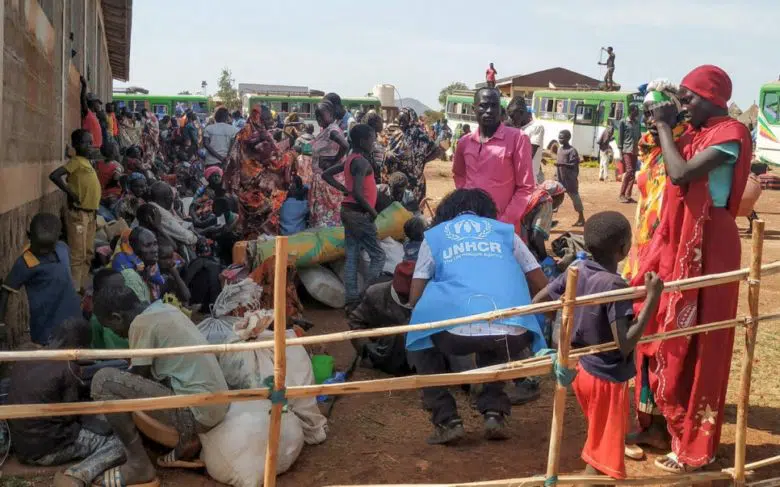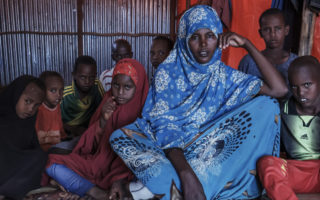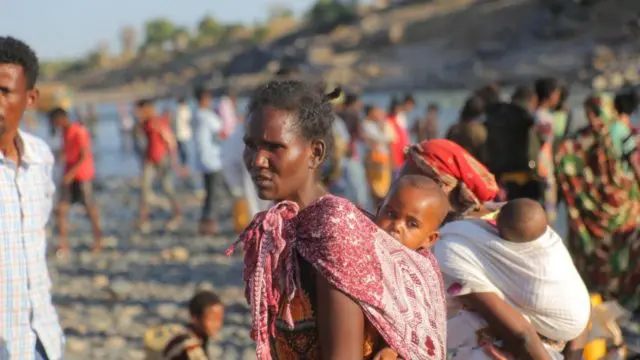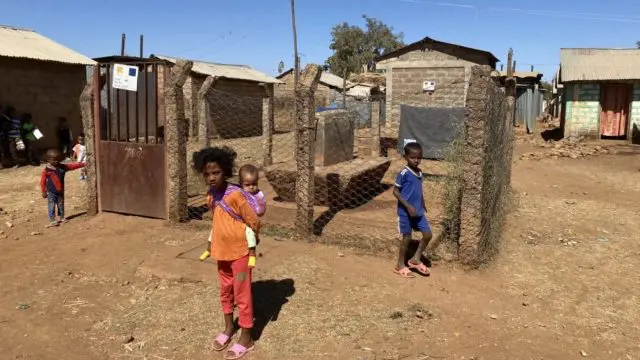
Sudanese and South Sudanese refugees arrive at a temporary site in Tsore, Ethiopia, after fleeing clashes in other parts of the country’s Benishangul Gumuz region. © UNHCR/UNHCR/Adelina Gomez Monteagudo
This is a summary of what was said by UNHCR spokesperson Boris Cheshirkov – to whom quoted text may be attributed – at today’s press briefing at the Palais des Nations in Geneva.
UNHCR, the UN Refugee Agency, and partners are rushing life-saving aid to more than 20,000 refugees after they fled clashes in Ethiopia’s Benishangul Gumuz region, bordering Sudan and South Sudan.
Fighting broke out on 18 January in the town of Tongo – reportedly between unidentified armed groups and federal forces – and the nearby camp hosting 10,300 refugees was looted and burned. This followed the looting of another camp in the area in late December. A total of 22,000 people in both camps were then cut off from access and assistance.
All humanitarian staff had to evacuate, and access to the area including the two camps – Tongo and Gure-Shembola – remains impossible.
Since December last year the situation has been very tense in the Benishangul Gumuz region, which hosts more than 70,000 Sudanese and South Sudanese refugees and over 500,000 internally displaced Ethiopians.
After the violence erupted, over 20,000 refugees made their way over long distances to three different sites closer to Assosa, the regional capital, arriving exhausted and in need of assistance.
UNHCR is working with the Ethiopian Government’s Refugee and Returnees Service (RRS) and partners to provide the most urgent assistance to displaced refugees, including hot meals, clean water, and medical care.
Benishangul Gumuz regional authorities have shown solidarity with refugees and identified a new temporary site with capacity to accommodate 20,000 people. UNHCR is working to install basic services including shelter, water points, and latrines and to begin relocating refugees to the site as soon as possible.
UNHCR has also recorded the arrival of 70 Sudanese refugees, mostly women and children, who fled the camps and returned to Sudan’s Blue Nile State. UNHCR teams in Sudan, together with the Sudanese authorities and partners, are providing assistance to these returnees, and contingencies are being put in place in case of more arrivals.
Three other refugee camps in the Benishangul Gumuz region – Bambasi, Sherkole and Tsore – remain fully accessible and all services there are functioning. In addition to supporting the refugees, the Government, UNHCR and partners have been providing assistance to those internally displaced in the region, reaching over 100,000 people throughout last year – particularly women and children – with clothing, shelter, psychosocial support and emergency items.
With the fighting continuing, a cessation of conflict is essential to avoid further threats to civilian lives in the region. UNHCR urges the protection of civilians, including refugees and those forcibly displaced.
Tragically, refugees who had sought and enjoyed safety and were rebuilding their lives have now lost everything all over again.
UNHCR’s Ethiopia operation has to date only received 9 per cent of the countrywide requirements of USD 335 million for the year and is in urgent need of resources to respond to this and other emergency needs.
For more information on this topic, please contact:
- In Addis, Neven Crvenkovic, crvenkov@unhcr.org, +251 948 053 450
- In Nairobi (regional), Faith Kasina, kasina@unhcr.org, +254 113 427 094
- In Geneva, Boris Cheshirkov, cheshirk@unhcr.org, +41 79 433 76 82
- In New York, Kathryn Mahoney, mahoney@unhcr.org, +1 347 443 7646
- In Khartoum, Giulia Raffaelli, rafaelli@unhcr.org, +249 912 167 016
Originally published by UNHCR on 04 February 2022.





